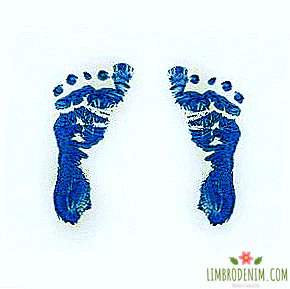NotOkay: Americans talk about their experiences of violence
Last Friday, the Washington Post edited a video with US presidential candidate Donald Trump. The video was filmed in 2005: Donald Trump was preparing for telephoto shooting and on the way to the studio, on the bus he talked with the presenter Billy Bush - this conversation was recorded. In the video, Trump says that he tried to have sex with a married woman, and boasts that he does not wait for the consent of women: "When you are a star, they let you do anything with them - grab them by the crotch, whatever."
The video was criticized not only by opponents of Donald Trump, but also by his allies from the Republican Party. After that, the politician released a video where he apologized: “I never said that I was perfect and did not pretend to be someone I really wasn’t. I spoke and did what I regret, and the words I uttered in This video, shot over a decade ago, is one of those things. Those who know me will confirm that these words do not say anything about me. " At the same time, Trump said that what was happening distracted the public's attention from more important problems and noted that there was a huge difference between his "silly statements" and the actions of Bill and Hillary Clinton: Bill Clinton harassed women, and Hillary humiliated his victims.
At the last Sunday’s presidential debates, Donald Trump adhered to the same logic: when asked whether he had condemned women, the politician tried to get away from the conversation and change the subject, adding that it’s worth paying attention to ISIL (organization is prohibited on the territory of the Russian Federation. - Approx. ed.).
Trump has responded to a number of publications: TIME and Vox have released materials on how Donald Trump's statements support a culture of violence, Mashable published a column of victims of violence. Canadian journalist Kelly Oxford tweeted a campaign similar to #YANEXD: she urged women to tell how they first became victims of sexual harassment to show that real statistics are hidden behind the dry statistics. Oxford wrote the first story herself: when she was 12, an elderly man on the bus started pawing her, and then smiled.
Since Friday, thousands of women (who later began to join men) tweeted stories about how they became victims of violence and harassment: Kelly Oxford said that at a certain stage she received 50 tweets per minute. Many of the participants of the action accompany their posts with the hashtag #NotOkay. Women talk about the different types of violence they face. Many were harassed by their friends, relatives and family members; many had to endure violence as a child. The participants of the action also often admit that for a long time they could not share their feelings with loved ones - and when they finally decided to do this, they were not believed. You can read more stories using the #NotOkay hashtag or here.
I am very happy, He wasn't the only one.
- Maureen Mower (@MaureenMower) October 9, 2016
I’ve made it so easy to run. #notokay
- Ruane K (@Ruadhain_K) October 9, 2016
@kellyoxford Medical professional. Respected. Family man. Family friend. Sexually assaulted me for several years. Starting when I was 10.
- Lorie Paddock (@loraliepaddock) October 9, 2016
If it happened.
- J (@ whatwhy30) October 9, 2016
I have no idea.
- Beth Bishop (@BethBWrites) October 9, 2016




